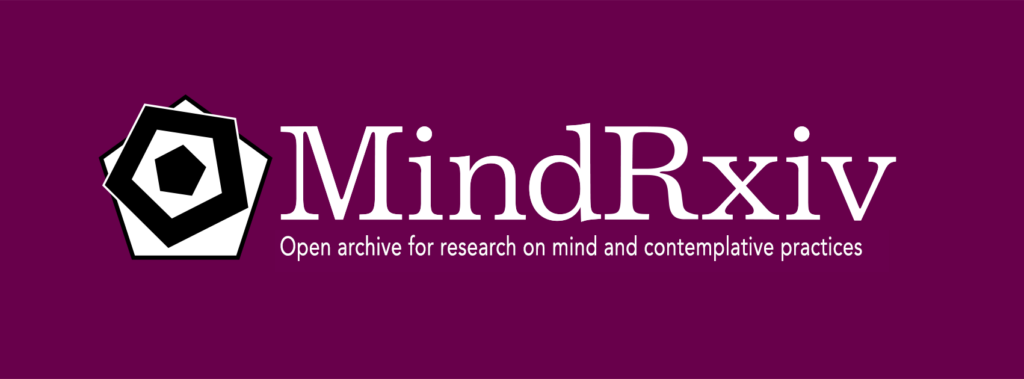
MindRxiv is an open archive for research on mind and contemplative practices hosted by the nonprofit Center for Open Science (COS) and formerly managed by the Mind & Life Institute. From 2017 to 2022, MindRxiv provided a free and publicly accessible platform for contemplative researchers within the sciences and humanities to upload working papers, preprints, published papers, data, and code. This service was created as part of Mind & Life’s commitment to opening up contemplative research—to reach more people more effectively, to improve research practices, and to build the future of scholarly communication. The server was launched in August 2017. In our first year, we hosted nearly 100 papers, which were downloaded over 20,000 times. The archive is now closed to new submissions, but the 270+ papers that it hosts will continue to be available to freely download.
See our blog for more information on transparency and open science as it relates to contemplative research.
FAQ
What are the benefits of using a preprint server?
- Promote research without walls by supporting open access, open source, public goods research infrastructure
- Getting your work into the public sphere faster than traditional publishing
- One place to store many outputs and materials for each project
- Stable, permanent URL (and unique DOI) to use in your CV, professional portfolio, citations, etc.
- Download statistics
This blog post offers more information on transparency and open science as it relates to contemplative research.
What is open access?
Historically, academic journal articles have been published behind “paywalls,” which means only those who have a subscription (often through their university library) or those with the ability to pay, can access and read them. “Open access” refers to the practice of making academic research publicly available for free, which means more people can access and read it.
What is posted on MindRxiv?
MindRxiv hosts academic/scholarly research only—thorough investigations in the format of an academic manuscript, citing other relevant research, generally undertaken in a university or other institutional setting. Relevant topics include all studies of the mind (e.g., contemplative research, psychology, cognitive science, philosophy, religious studies, anthropology, etc.) MindRxiv is part of the Open Science Framework Preprints service and is referred to as a preprints server; however, it hosts papers at a number of stages in the research process:
- Working papers: Any draft of a paper that is ready to share with interested parties, but has not yet been peer reviewed.
- Preprints: This term is commonly used to refer to completed papers that have not yet been peer reviewed. However, by some definitions this includes versions of a paper that have been peer reviewed and accepted, but are not yet published by a journal. MindRxiv hosts preprint papers from either of these definitions.
- Post-prints: A paper that has been published by a journal can be shared on MindRxiv after consulting the journal’s copyright and self-archiving policy. A post-print may be an “author version” that does not include the journal’s formatting or other changes, or it may be the publisher’s final, formatted version if you have the right to distribute it (or if the paper is already open access).
How do I upload a paper?
As of December 2022, it is no longer possible to upload papers to MindRxiv. We apologize for the inconvenience.
Does Google Scholar index MindRxiv?
Yes. As of April 2017 Google Scholar is successfully ingesting and linking to MindRxiv papers and other papers on the OSF Preprints server.
Do papers that are uploaded to MindRxiv receive a Digital Object Identifier (DOI)?
Yes. All MindRxiv papers are automatically assigned a unique DOI for their project. In addition, if a paper has been published elsewhere and already has a DOI, that information can be included when uploading it to MindRxiv; this allows the preprint to link to the latest published version.
What is the legal status of MindRxiv?
MindRxiv is hosted by the nonprofit Center for Open Science (COS) through the OSF Framework web platform.
What is the Center for Open Science (COS) and the Open Science Framework (OSF)?
COS is the owner of OSF Preprints, the platform on which MindRxiv runs. OSF Preprints is a part of the OSF, which “provides free and open source project management support for researchers across the entire research lifecycle.” It hosts MindRxiv papers and allows users to link papers to other components of research projects such as data and code. Learn more about COS by visiting their FAQ page.

